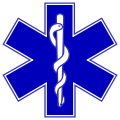How the Scientific Revolution led the West into Despair
I wrote the following letter after reading the book Assumptions that Affect our Lives by Christian Overman. After proofing my letter, I realized it presents a part of the concern I have about modern science. The letter assumes understanding of a perspective, however, that I need to very, very briefly identify to make the letter more meaningful to my readers.
Francis Schaeffer, Carver T. Yu (Being and Relation: A Theological Critique of Western Dualism and Individualism), James W. Sire (The Universe Next Door: A Basic Worldview Catalog) and Christian Overman all elaborate to one degree or another what Schaeffer calls the “line of despair.” Essentially, the change in worldview from some form of theistic worldview to one that provides no meaning, purpose or context for mankind leads to nihilism in various forms and to varying degrees. All these authors, except for Yu who is cited below, do not consider the Scientific Revolution as playing a part in that descent into despair in the Western world.
I suspect many of my readers are unaware of such a descent because it isn’t evident in the general population – or so one would think. I encourage reading the works of Schaeffer and the others listed above before deciding that your impression of the state of affairs in our Western culture is correct. Until then, assume for the moment that their assessment is true and consider what I wrote to Christian Overman below.
Mr. Overman: I’m enjoying your book Assumptions that Affect our Lives. I’ve been pursuing this same topic from a different perspective, in particular, the affect of science on Western civilization and Western Christianity. I’ve done a lot of reading over the last few years on the history of science and I’ve found that Greek philosophy and certain occult arts are at the very foundation without question. In other words, modern science was founded in and upon much of the same worldview that you elaborate in your book. Several books I’ve read have shown how the affect science has had on the Western worldview line up very much with those effects you express concern about.
In particular, in The Metaphysical Foundations of Modern Science, Edwin Arthur Burtt states the following which I present here very, very briefly. “Till the time of Galileo it had always been taken for granted that man and nature were both integral parts of a larger whole, in which man’s place was the more fundamental.” Later in the same paragraph, he states, “Man begins to appear for the first time in the history of thought as an irrelevant spectator and insignificant effect of the great mathematical system which is the substance of reality.” He goes on to explain the metaphysical implications of the work of Descartes and Newton, as well as that of Galileo, which come out of the scientific revolution and have led to the modern problems you elaborate.
Another interesting book is Carver T. Yu’s Being and Relation: A Theological Critique of Western Dualism and Individualism . He writes from a Chinese, professedly-Christian, perspective and puts forth that Western science is at the root of the problems in Western civilization, which he elaborates much the same as did Francis Schaeffer in his works – the same problems as Schaeffer elaborated, though Schaeffer expressed esteem for science. He then contrasts the Western view of reality with the Hebrew view, briefly, random particles under the capricious laws of physics (western science) vs. God working through history (Hebrew). He cites Eliade in the following statement regarding this impact on Western Christianity: “From this it would appear that, even for a genuine Christian, the world is no longer felt as the work of God .” We might contest that, but perhaps there is more of this thinking in us than we’d like to admit. In any case, I think he has a point that even applies to Western Christianity, and certainly Western civilization as a whole, that science has affected our view of reality vs. the Hebrew view.
James A. Connor, in Kepler’s Witch: An Astronomer’s Discovery of Cosmic Order Amid Religious War, Political Intrigue, and the Heresy Trial of His Mother , talks about the impact of Kepler’s and Galileo’s work leaving man and the universe without meaning. He says, “Later generations seemed to think that the geocentric model promoted the dignity of humanity’s place in the universe, as the apple of God’s eye, while the Copernican system turned this around and set the earth spinning meaninglessly through a meaningless universe .” One problem with the former view, however, was that it was not purely Biblical but heavily influenced by Aristotle’s and Greek philosophy’s view of meaning and purpose. However pagan it may have been, I think we’d have to agree that view is probably closer to a Biblical view than is meaninglessness.
An additional comment on this view of the meaninglessness of matter and the universe comes from a strange reference: Julius E. Heuscher, M.D., F.A.P.A., A Psychiatric Study of Fairy Tales, Their Origin, Meaning and Usefulness . He says, “The rapid development of the physical sciences was favored by either denying reality to, or splitting off, ‘meaningfulness.’ Only when we fully recognize that natural science is the product of a limiting hypothesis ( ‘How does the world appear, if we assume that it has no meaning’ ), can we begin to integrate its fruits in a newly significant conception of the world.” This conception would probably have to be judged anti-Biblical.
There is more which I am trying to elaborate in a kind of draft form on my blog casualmusings.blogspot.com. This doesn’t begin to describe what I am finding as far as the inclusion of occult arts in the development of, as well as the motivation for science.
I have read the book by Pearcey and Thaxton, The Soul of Science , but I think it fails to look critically at the pagan and occult influences on sciences but rather accepts them uncritically as somehow neutral. I fail to see how neo-Platonism and Pythagoreanism and even Aristotle, all pagans with no foundation in anything approaching a Hebrew worldview, could possibly be acceptable to Christians, similarly as you’ve stated in your book regarding the influence of Greece on the modern West. Pearcey and Thaxton try to make the point that the worldview of Christianity was uniquely responsible for the scientific revolution. Rather we find that Christians were immersed in all manner of paganism. I also don’t think we should consider any atheistic influence of the Ionians as any better.
The bottom line: I think the decline you speak of didn’t start 50 or even 200 years ago. I think the decline started in the 2nd century when Christians began adopting aspects of Greek thought through philosophy, propelled by Augustine’s reconciling Plato (Neo-Platonism) with Christianity, furthered by Aquinas’ acceptance of Aristotle, continued by Copernicus’, Kepler’s and Galileo’s resurgence of Neo-Platonism and Pythagoreanism, and especially capped off by Newton’s occult involvement (alchemy and a little black magic) in his development of his theories. In fact, a professor of Eastern philosophy at a local university – not a believer himself – said that all the members of the Royal Society were involved in the occult, most notably Rosicrucianism and alchemy. For Newton, see Michael White’s biography Isaac Newton: The Last Sorcerer . Of course, these are just the highpoints. Most men in the development of science were professing Christians, yet all were more influenced by worldviews antagonistic to a truly Christian worldview. In other words, I think modern Christianity has missed the negative influence of science. I recognize in that statement that science is a very, very general term.
One last quote by Newbigin, repeated by Hiebert in The Flaw of the Excluded Middle : “…Western Christian missions have been one of the greatest secularizing forces in history.” Should not this indicate to us, if true, that even modern Christianity has been negatively affected by something that has secularized our Christianity to a large degree? Could not this culprit be, in part, science?
Anyhow, any thoughts you have on this would be welcome as I work through this.
Rob Walsman
Labels: line of despair, nihilism, Overman, Schaeffer, Scientific Revolution, worldview, Yu



